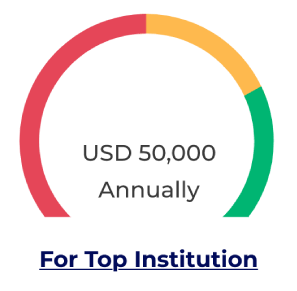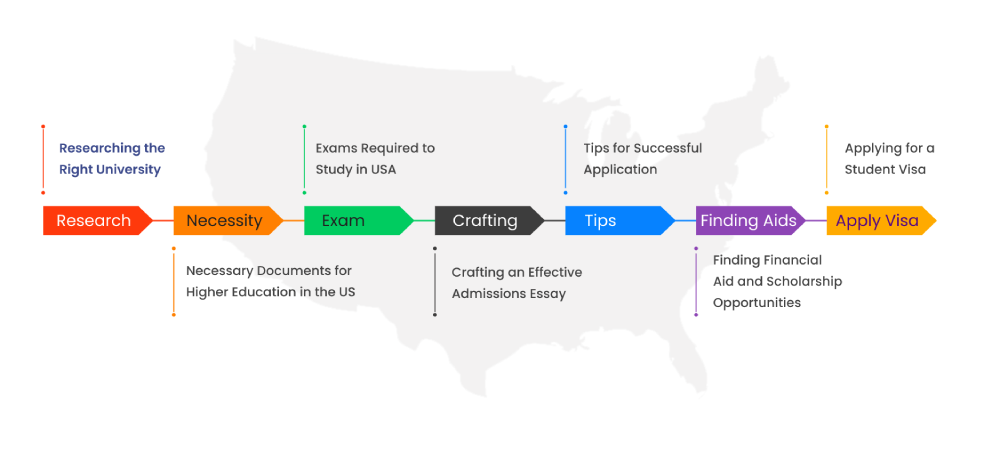Cost of Studying in USA
Top institutions in the United States have an annual tuition fee of approximately USD 50,000 a year. However, it varies widely across institutions and programs. For example, the average cost of an MBA could be around USD 70,000, while that of an arts degree could be approximately USD 35,000. A Bachelor's degree in the United States may cost between USD 12,000 and 25,000 a year (can go up to USD 35,000 as well, depending upon the program), while a Master's degree may cost between USD 18,000 and 35,000 per year.
- MBA : USD 70,000/- Approx Annually
- For Art Degree : USD 35,000/- Approx Annually
- Bachelor's Degree : USD 12,000 to 25,000/- Approx Annually
- Master's Degree : USD 18,000 to 35,000/- Approx Annually
Click here to find out the average tuition fee of popular programs in the USA.
Cost of Living in USA
The average cost of living in the United States is projected to be between USD 10,000 and 18,000 per year, or USD 1,000 and 1,500 per month. Almost all universities in the USA offer on-campus housing, while others require students to find their own accommodation. Moreover, some universities offer on-campus jobs, but many others do not. If you need to find your own housing and/or a job, you may want to consider living with a host family or finding a job in a restaurant or grocery store that is close to your university. This will facilitate your travel to and from your university, as well as make it easier to balance your studies with work while studying abroad.
- Food : USD 200 to 800/- Approx Annually
- Transportation : USD 50 to 200/- Approx Annually
- Utilities : USD 100 to 200/- Approx Annually
- Personal expenses : USD 200 to $800/- Approx Annually
- Books and study material : USD 50 to 200/- Approx Annually
These are just general estimates, and your actual costs may vary as per your location and other factors.























































































 Fall Intake
Fall Intake


























